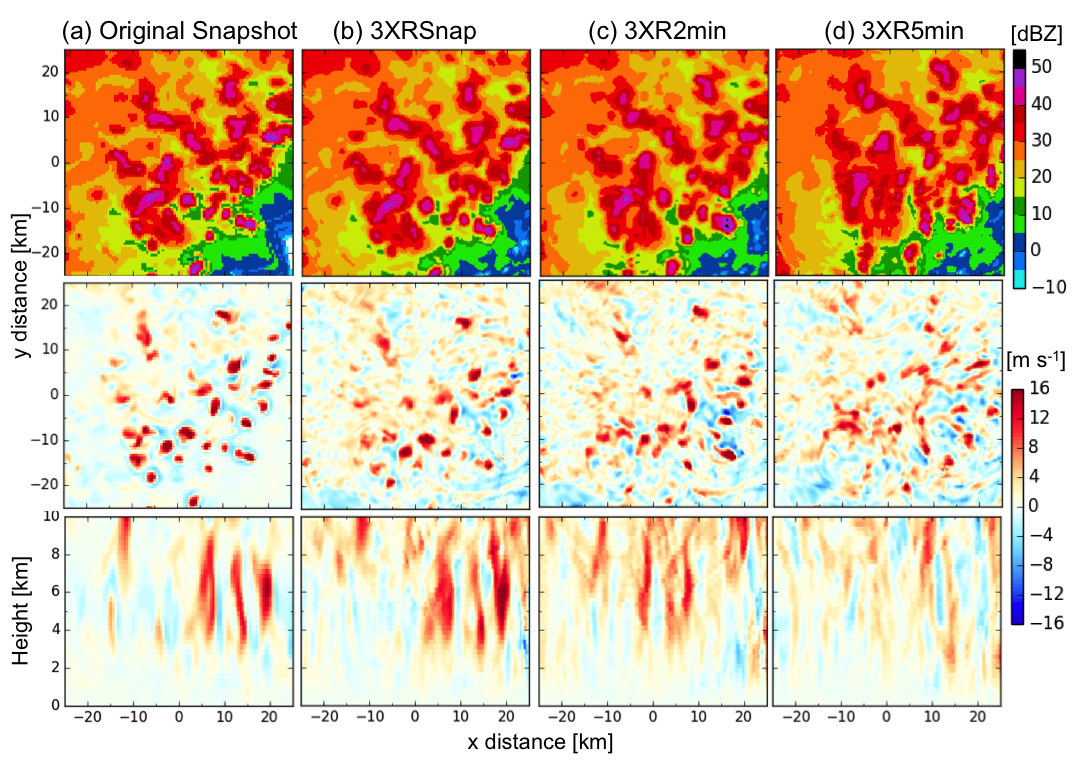Impacts of observational error sources on multi Doppler radar vertical air motion retrievals
Submitter:
Oue, Mariko — Stony Brook University
Area of research:
Vertical Velocity
Journal Reference:
Science
The vertical motions in deep convective clouds regulate precipitation amount, intensity, and associated cloudiness. Multi-Doppler radar networks have been used to probe convection and provide wind retrievals including vertical air motion estimates. While a plethora of studies illustrate the ability of multi-Doppler radar observations to capture wind divergence and circulation, there is little to show regarding the capability of the radar observing system to capture upper-level convective dynamics.
Impact
This study addressed potential observational sources of errors in scanning Doppler radar updraft estimates for deep convective clouds. The present study suggests that multi-Doppler radar techniques tend to underestimate the updraft values at middle and upper levels and need to be carefully used to evaluate cloud-resolving model simulations considering the limitations of the radar observing system. This analysis provides valuable information to improve observation strategies and decide optimized scan strategies for ongoing and future field campaigns targeting deep convection.
Summary
The impacts of the selected radar volume coverage pattern (VCP), the sampling time for the VCP, the number of radars used, and the added value of advection correction on the retrieval of vertical air motion in the upper part of convective clouds are examined using the Weather Research and Forecasting model simulation, the Cloud-Resolving Model Radar SIMulator (https://you.stonybrook.edu/radar/research/radar-simulators/), and a three-dimensional variational multi-Doppler radar retrieval technique. The findings are: 1) the VCP elevation strategy and sampling time have a significant effect on the retrieved updraft properties above 6 km altitude; 2) 2-min or shorter VCPs have small impacts on the retrievals; 3) increasing the density of elevation angles in VCP appears to be more effective to reduce the uncertainty than an addition of data from one more radar, if the VCP is performed in 2 minutes; and 4) the application of an advection correction to the 2-min VCPs can effectively improve the updraft retrievals, but for longer VCP sampling periods (5 min) the value of advection correction is challenging. This study suggests that the use of rapid-scan radars can substantially improve the quality of wind retrievals if conducted in a limited spatial domain.


